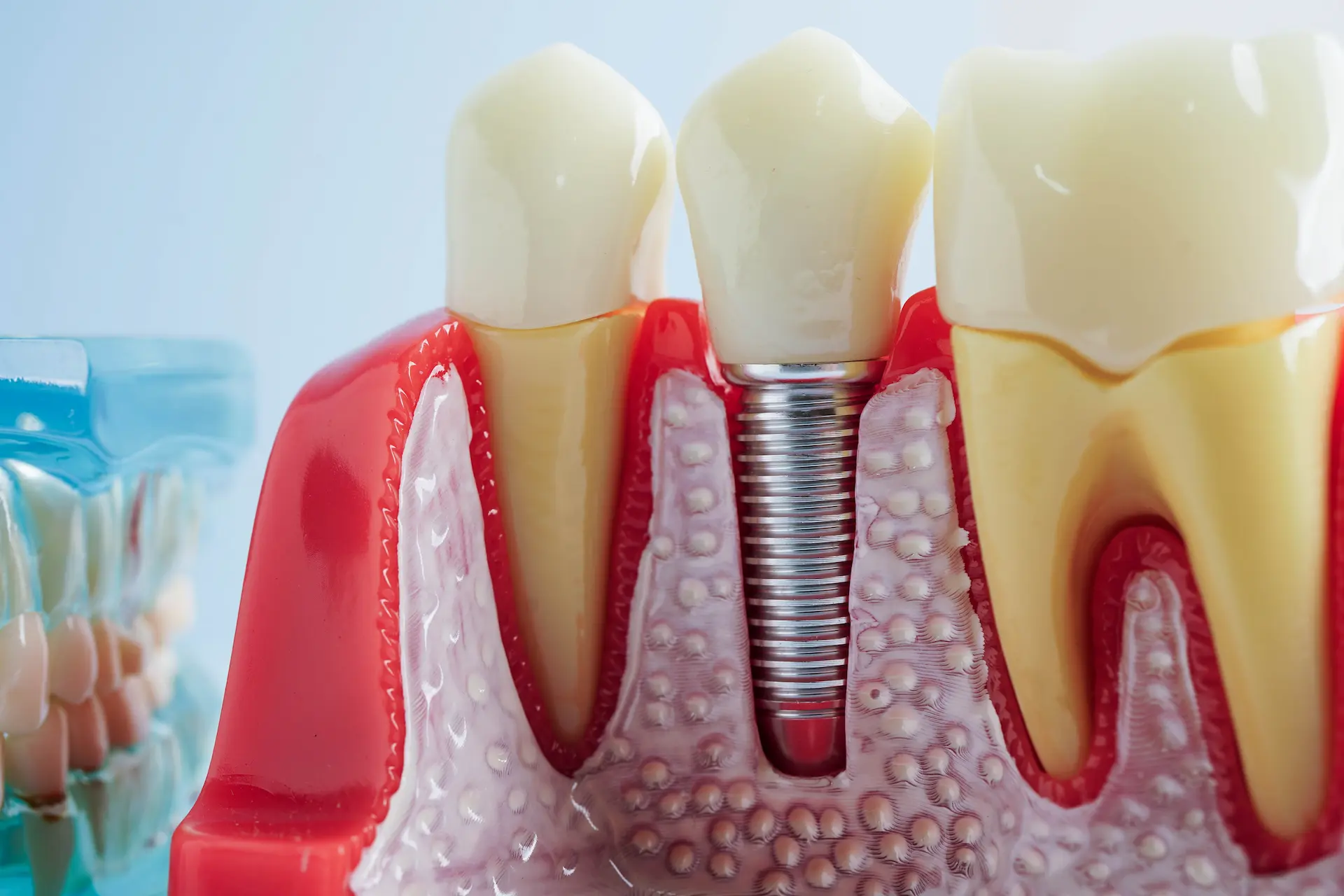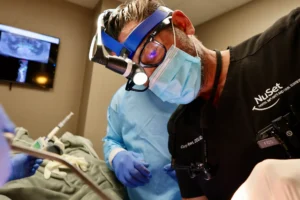A dental implant is a metal post that’s surgically placed into your jawbone to support a new tooth. Once the implant is secure, a dentist or oral surgeon attaches a customized replacement tooth to it. To make sure you don’t have to wait with a gap in your smile, a temporary tooth or teeth will be placed while the implant is integrating with the bone.
While dental implants have a high success rate, it is rare to see a dental implant failure. While rare, this failure can happen either soon after the procedure or months or even years later.
If you are planning to get a dental implant or already have one, it’s important to know the signs of implant failure and other possible complications.
Common Signs of Dental Implant Failure
Here are some common signs to watch for:
Severe Pain and Discomfort
Experiencing some pain after getting a dental implant is normal. However, if the pain is severe or lasts a prolonged period, it might be a sign of implant failure. Normal healing pain should be manageable with painkillers and should lessen over time. If you feel sharp, throbbing pain that doesn’t improve, contact your dentist immediately.
Gum Recession around the Implant
Gum recession can happen if the implant is not properly placed or if there isn’t enough gum and bone tissue. Signs include seeing more of the implant than before and inflammation around the implant. If your gums look like they are pulling back from the implant, you need immediate help.
Difficulty While Chewing and Biting
Dental implants should feel like natural teeth. If you have trouble chewing or biting, it might indicate a problem. Pain while eating or a feeling that something isn’t right when you bite down can be signs of implant failure.
Shifting and Loose Implant
A properly placed implant should feel stable. If it feels loose or moves when you touch it, this is a clear sign of failure. A loose implant can cause damage to your gums and jawbone.
Swollen Gums
Swelling is normal after surgery, but it should go away within a few days. If your gums stay swollen or become red and inflamed, it could mean an infection. Infections can spread and become serious.
Sudden Allergic Reactions
Dental implants are usually made of titanium, which can cause allergies in some people. Symptoms include swelling, loss of taste, and a tingling sensation. If you have these symptoms, it might mean your body is rejecting the implant.
Knowing these signs can help you act quickly if something goes wrong with your dental implant. At NuSet, we understand that this journey can be new and sometimes unsettling, which is why we are committed to your comfort and care. We meticulously plan each treatment to suit your individual needs and provide the utmost care throughout the process.
How to Prevent Dental Implant Failure

Preventing dental implant failure is essential to ensure long-term success and oral health. Here are some key steps you can take to reduce the risk of complications:
Choose a Qualified Surgeon
It is important to select a skilled and experienced dental surgeon. An experienced surgeon ensures the implant is placed correctly, reducing the risk of complications. Always check your dental professional’s credentials and experience.
Pre-Surgery Assessments
Thorough assessments are vital before your implant surgery. Your surgeon should evaluate the health of your gums and jawbone. This includes X-rays and possibly 3D imaging to plan the procedure accurately. Proper planning helps place the implant in the best position for stability and success. To get all the information you need before your surgery, schedule a complimentary consultation with us.
Follow Post-Operative Care Instructions
Following the care instructions provided by your surgeon after your surgery is essential. This includes taking prescribed medications, avoiding hard and sticky foods, and maintaining good oral hygiene. Proper care helps in the healing process and reduces the risk of infection and implant failure.
Avoid Smoking
Smoking can significantly increase the risk of implant failure. It affects blood flow to the gums and can hinder the healing process. If you smoke, consider quitting to improve the chances of your implant’s success.
Manage Teeth Grinding (Bruxism)
Grinding your teeth can stress your implants and lead to failure. Talk to your dentist about getting a night guard to protect your implants. Managing bruxism is important to maintaining the integrity of your dental implants.
Visit NuSet Dental Implants and Oral Surgery For Professional Help!
Taking care of your dental implants is vital for their success and your overall oral health. By knowing the signs of implant failure, taking preventive measures, and acting quickly if problems arise, you can maintain a healthy, confident smile.
If you notice any issues with your dental implants or need a check-up, contact us. Our team is here to help you with any concerns and ensure your implants remain in excellent condition. Schedule your appointment now to keep your smile healthy and strong.
Frequently Asked Questions
How do you know if a tooth implant is failing?
You can identify a failing tooth implant by looking for several key signs. These include severe pain and discomfort, gum recession around the implant, difficulty chewing or biting, shifting or loose implants, persistent swelling of the gums, and signs of infection such as redness and pus. If you experience any of these symptoms, contact us immediately for an evaluation.
How do you know if your implant isn’t working?
If your implant isn’t working properly, you might notice similar signs to those of implant failure. These include ongoing pain, discomfort when chewing, or a feeling that the implant is loose or shifting. Other indicators are persistent inflammation, gum recession, and difficulty biting. Regular check-ups with us at NuSet can help detect issues early and ensure your implant functions correctly.
What is the most common cause of implant failure?
The most common cause of dental implant failure is infection around the implant, known as peri-implantitis. This condition can lead to bone loss and the implant becoming loose. Poor oral hygiene, smoking, and uncontrolled diabetes can increase the risk of infection. Other causes include insufficient bone density, incorrect placement, and excessive stress on the implant from teeth grinding.
Can a failed dental implant be replaced?
Yes, a failed dental implant can often be replaced. The process involves removing the failed implant, treating any underlying issues such as infection or bone loss, and allowing the area to heal. Once healed, a new implant can be placed. We will assess your situation and provide a personalized treatment plan to replace your failed implant effectively.





